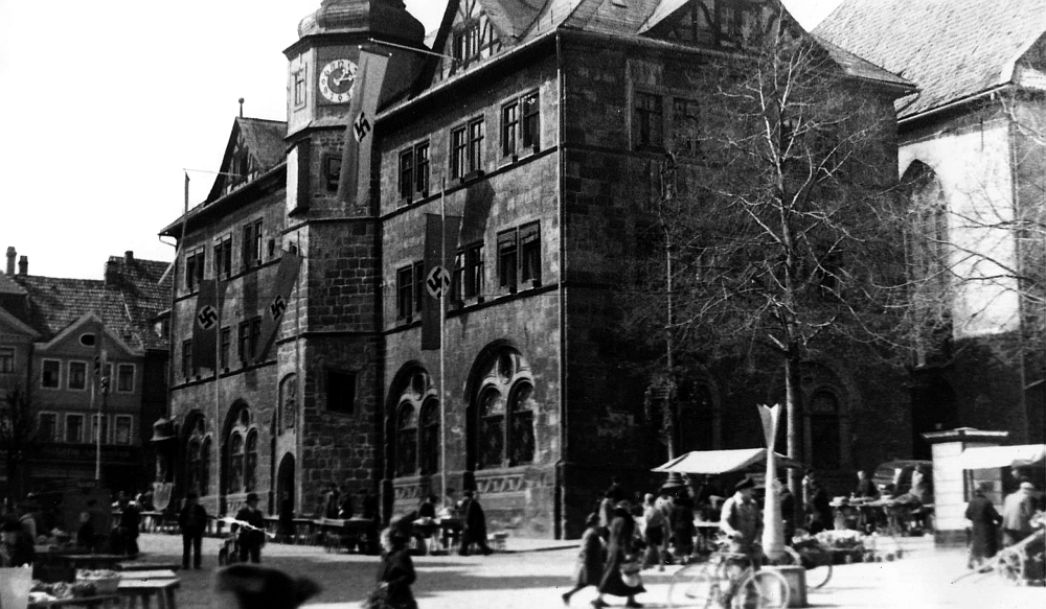
Immediately after Adolf Hitler's appointment as Reich Chancellor on 30 January 1933, the National Socialists began to extend their influence to the subordinate levels of state administration. Democratic institutions were demolished and elected representatives were forcibly removed from office. The local establishment of Nazi rule also took place in Nordhausen within a few months.
In the spring of 1933, the "Laws on the Coordination of the States with the Reich" ordered the dissolution of the state parliaments. Their new composition was based on the voting ratios of the Reichstag elections of 5 March 1933 in the respective state. The votes that had gone to the KPD were excluded from the outset. The National Socialists also enforced this procedure in local government: From the district assemblies to the municipal councils, the majority ratios shifted in favour of the NSDAP in this way without democratic elections. For many party members, this opened up the opportunity to take personal advantage of the takeover and move into vacant positions. In the long term, these measures served to centralise state power according to the "Führerprinzip".
In Nordhausen too, the NSDAP immediately set about realising the coordination of the local administration. Just one week after the Reichstag elections on 5 March 1933, in which the NSDAP had achieved an above-average result in Nordhausen with over 46 percent of the vote compared to the rest of the country, the city council was dissolved. The left-liberal mayor Dr Curt Baller and the Social Democrat alderman Albert Pabst were dismissed, as were other local politicians who did not belong to the NSDAP. A similar fate befell more than half of the city councillors, who were expelled from the assembly in the following weeks.
The exclusion of all opposition parties from political life was accompanied by a wave of arrests of their members, the confiscation of party property and the expropriation of real estate. The party account of the
